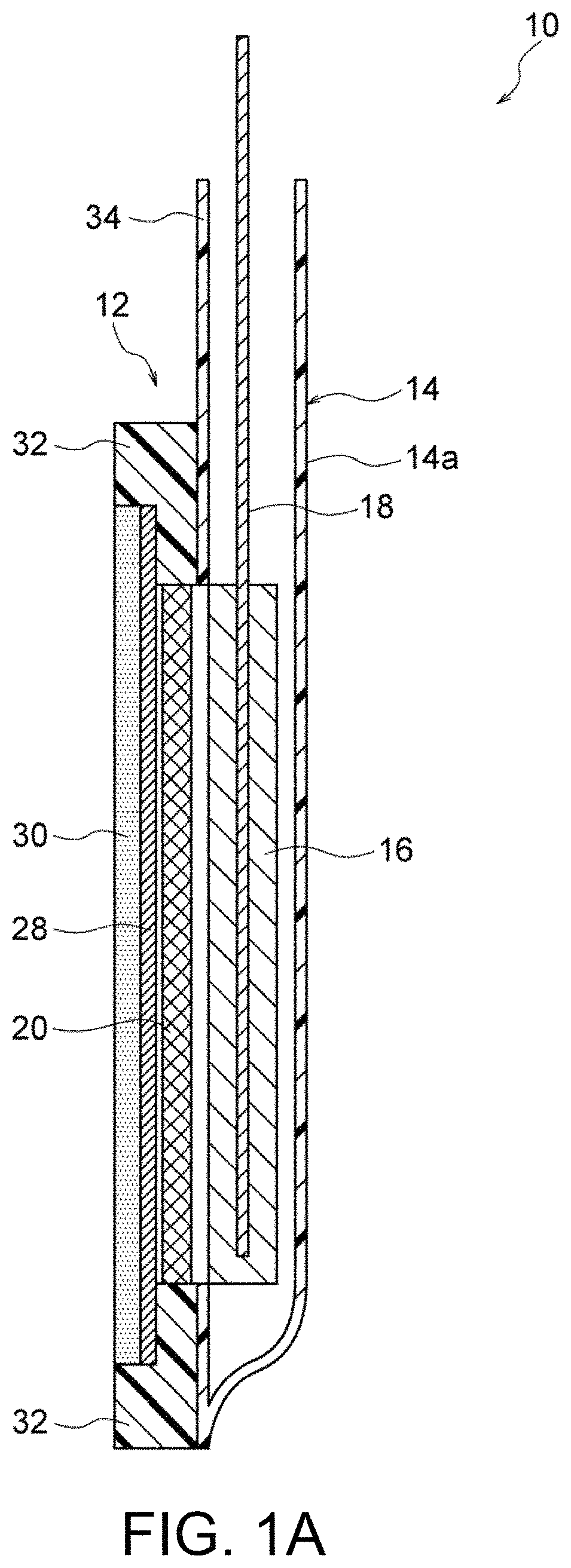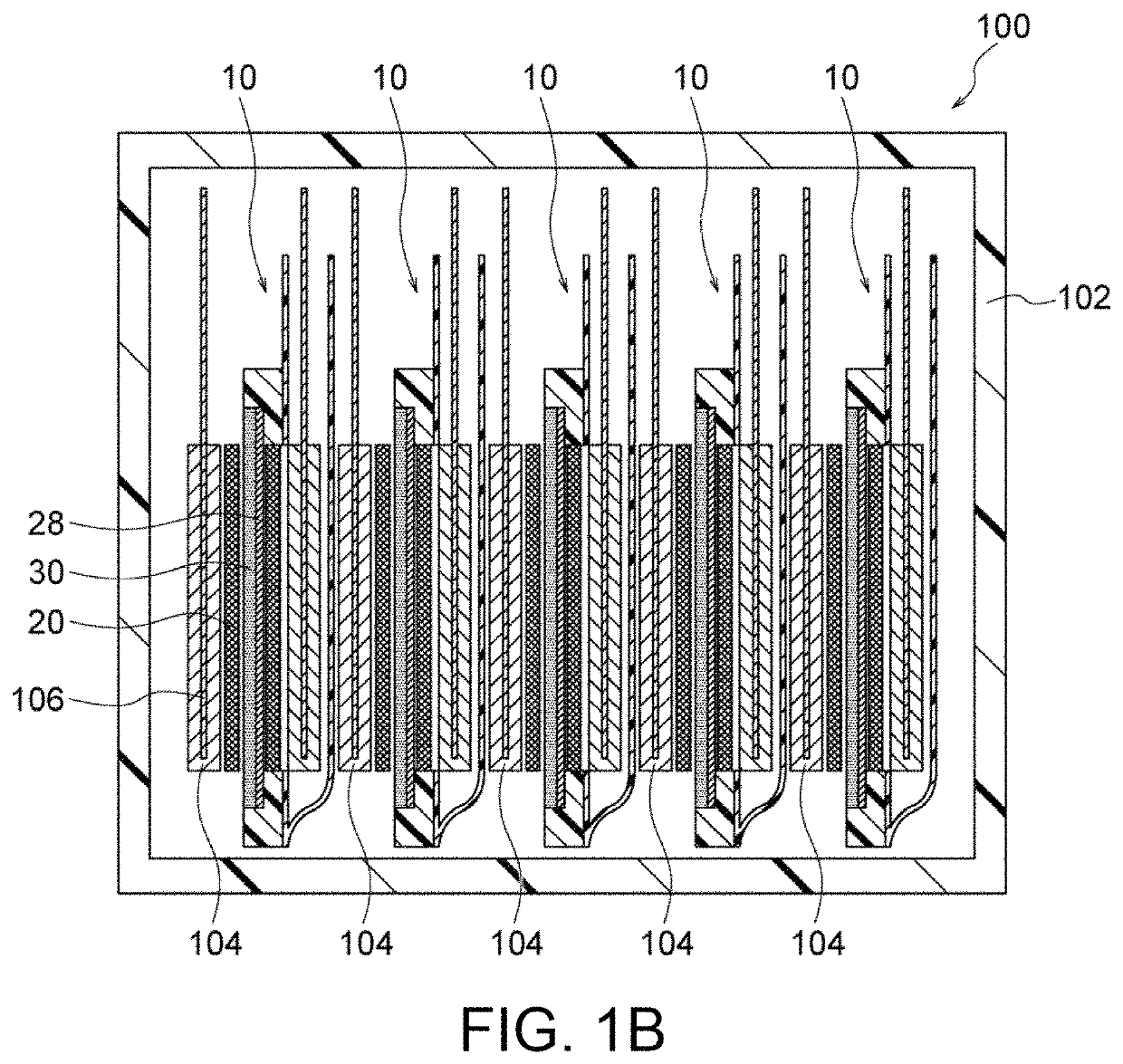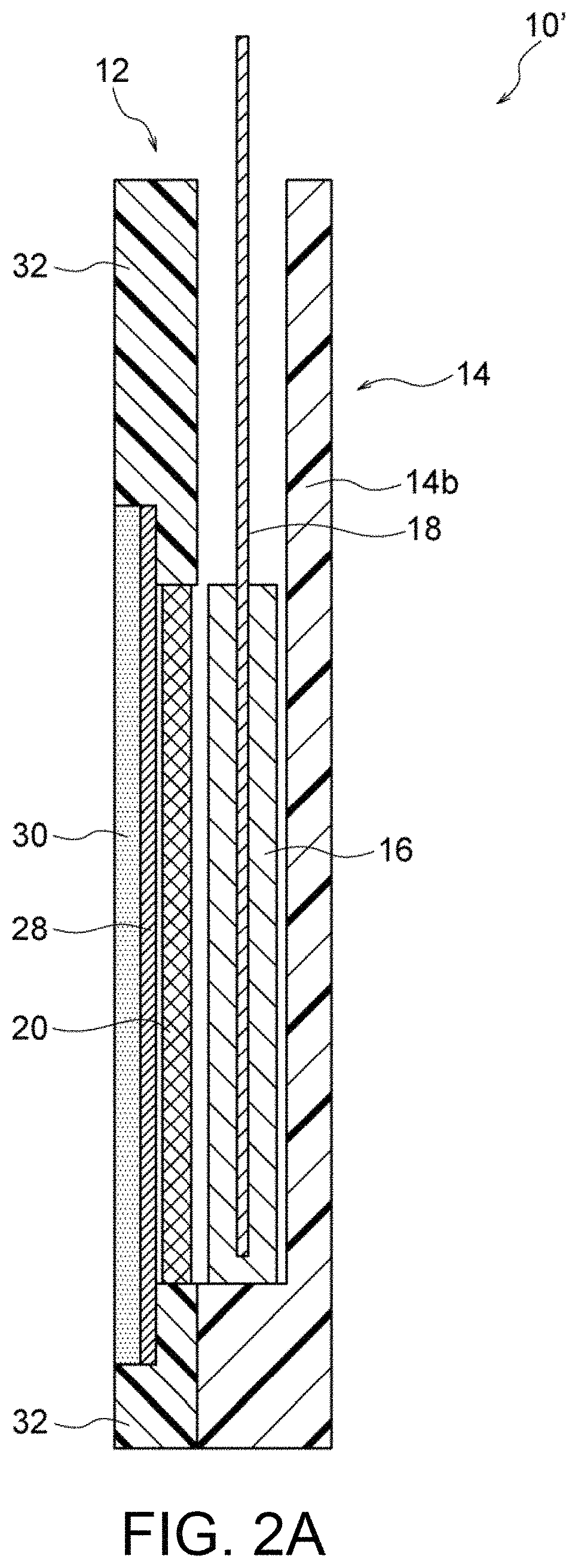Electrode cartridge and zinc secondary cell using same
a secondary battery and electrochemical technology, applied in the direction of cell components, final product manufacturing, sustainable manufacturing/processing, etc., can solve the problems of complex film damage, and high complexity of such battery configuration and manufacturing process, and achieve the effect of preventing the short circuit caused by dendritic zinc, high voltage and high curren
- Summary
- Abstract
- Description
- Claims
- Application Information
AI Technical Summary
Benefits of technology
Problems solved by technology
Method used
Image
Examples
example 1
on and Evaluation of Porous Substrate-Supported LDH Separator
[0131](1) Preparation of Porous Substrate
[0132]Boehmite (DISPAL 18N4-80, manufactured by Sasol Limited), methyl cellulose, and ion-exchange water were weighed in proportions by mass of 10:1:5, and were then kneaded together. The kneaded product was subjected to extrusion molding with a hand press into a plate having a size sufficiently exceeding 5 cm×8 cm and a thickness of 0.5 cm. The resultant green body was dried at 80° C. for 12 hours and then fired at 1,150° C. for three hours, to prepare an alumina porous substrate. The porous substrate was cut into a piece of 5 cm×8 cm.
[0133]The porosity at the surface of the resultant porous substrate was determined by a method involving image processing. The porosity was 24.6%. The porosity was determined as follows: 1) a scanning electron microscopic (SEM) image of the surface microstructure of the porous substrate was taken with a scanning electron microscope (SEM; JSM-6610LV, m...
example 2 (
Reference): Preparation of Laminated Nickel-Zinc Battery Cartridge
[0154]This example involves preparation of a stacked-cell battery type nickel zinc cartridge (cell pack) including a positive electrode and a negative electrode separated by a separator structure, and corresponds to a reference example (not an example preparation of an electrode cartridge of the present invention). In this example, one of the sections containing the positive electrode (positive-electrode chamber) or containing the negative electrode (negative-electrode chamber) in an independent form corresponds to the electrode cartridge of the present invention. Accordingly, it is to be understood that the electrode cartridge of the present invention can be prepared as appropriate by referring to this example.
[0155](1) Preparation of Separator Structure
[0156]An alumina substrate-supported LDH membrane was prepared as a porous substrate-supported separator, as in the Example 1. As shown in FIGS. 13A and 13B, a separa...
example 3
[0163]In this example, samples 1 to 10; i.e., samples of layered double hydroxide (LDH)-containing composite material (samples of separator with porous substrate) were prepared by formation of an LDH dense membrane on a porous substrate.
[0164](1) Preparation of Porous Substrate
[0165]Boehmite (DISPAL 18N4-80, manufactured by Sasol Limited), methyl cellulose, and ion-exchange water were weighed in proportions by mass of 10:1:5, and were then kneaded together. The kneaded product was subjected to extrusion molding with a hand press into a size of 2.5 cm×10 cm×0.5 cm in thickness. The resultant green body was dried at 80° C. for 12 hours and then fired at 1,150° C. for three hours, to prepare an alumina porous substrate.
[0166]The porosity at the surface of the resultant porous substrate was determined by a method involving image processing. The porosity was 24.6%. The porosity was determined as follows: 1) a scanning electron microscopic (SEM) image of the surface microstructure of the ...
PUM
| Property | Measurement | Unit |
|---|---|---|
| thickness | aaaaa | aaaaa |
| thickness | aaaaa | aaaaa |
| thickness | aaaaa | aaaaa |
Abstract
Description
Claims
Application Information
 Login to View More
Login to View More - R&D
- Intellectual Property
- Life Sciences
- Materials
- Tech Scout
- Unparalleled Data Quality
- Higher Quality Content
- 60% Fewer Hallucinations
Browse by: Latest US Patents, China's latest patents, Technical Efficacy Thesaurus, Application Domain, Technology Topic, Popular Technical Reports.
© 2025 PatSnap. All rights reserved.Legal|Privacy policy|Modern Slavery Act Transparency Statement|Sitemap|About US| Contact US: help@patsnap.com



